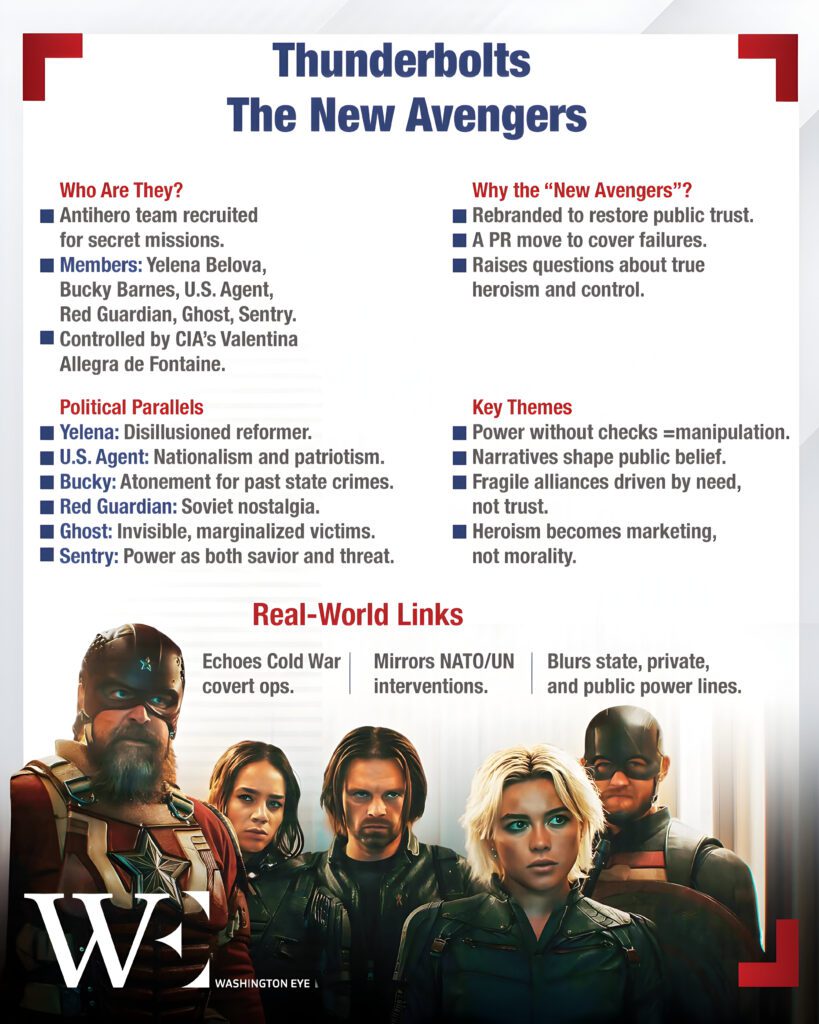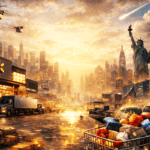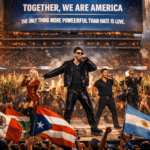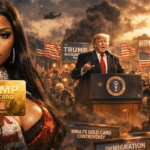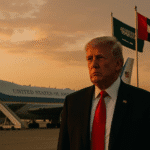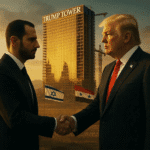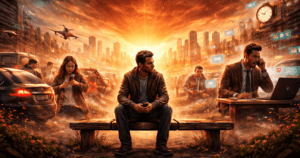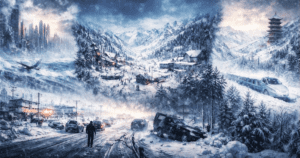When Marvel’s Thunderbolts rolled into theatres, many fans expected a darker, grittier take on the superhero formula. What they didn’t expect was a film that, beneath the explosions and betrayals, served as a mirror to today’s political world. As the Thunderbolts transition from a rogue team of misfits into the MCU’s newly minted “New Avengers,” the film raises uncomfortable questions about leadership, power, and accountability—questions that feel eerily familiar in our own geopolitical landscape.
At its core, Thunderbolts is about image control. By the film’s end, the battered, manipulated team—Yelena Belova, Bucky Barnes, U.S. Agent, Red Guardian, Ghost, and Sentry—are paraded before cameras as the next iteration of the Avengers. It’s a PR victory orchestrated by CIA Director Valentina Allegra de Fontaine, spinning a botched black-ops mission into a heroic narrative. It’s the ultimate political sleight of hand: rebranding failure into triumph, rewriting a messy past for public consumption.
In this, the film parallels real-world examples of governments repackaging controversial operations. Think of military interventions framed as “humanitarian missions,” or secret programs rebranded to deflect public outrage. Whether it’s NATO airstrikes in Libya or surveillance revelations from the Snowden leaks, the political playbook is clear: control the narrative, and you control the perception of legitimacy.
Each Avenger, a Political Archetype
The characters themselves embody political ideologies that clash and intertwine, reflecting the fractured alliances of today’s world.
– Yelena Belova, driven by disillusionment with state power, represents the individual who distrusts institutions but feels morally compelled to act. She’s the dissident who doesn’t fully reject the system but can’t forget its betrayals—a mirror to activists caught between reform and revolution.
– John Walker (U.S. Agent) is the embodiment of American exceptionalism, wielding patriotism as both shield and weapon. His loyalty isn’t to ideals but to the flag—a reminder of how nationalism can blur into authoritarianism when tied too tightly to identity.
– Bucky Barnes, the former Winter Soldier, stands for nations haunted by their past crimes, trying to atone while carrying scars others won’t let them forget. His struggle mirrors post-war Germany or Japan, balancing guilt, responsibility, and reluctant leadership.
– Red Guardian is a relic of the Cold War, an echo of a time when ideological rivalry defined the world. He’s charming, bombastic, and nostalgic for a Soviet past—a nod to Russia’s own uneasy relationship with its imperial history.
– Ghost, phasing in and out of visibility, reflects the marginalised, those invisible to power structures yet shaped by their experiments. She’s the product of institutional abuse, similar to communities left behind by globalisation, forced to survive on the fringes.
– And then there’s Sentry—the most potent metaphor of all. With immense power and an alter ego, The Void, that embodies his destructive impulses, Sentry is the nuclear arsenal of the group: both saviour and existential threat. His very existence demands containment, regulation, and vigilance—a chilling echo of today’s fears around AI, biotech, and weapons of mass destruction.
A New Avengers for a Multipolar World
Unlike the idealistic Avengers of the past, this team is messy, compromised, and morally grey. Their formation speaks less to unity than to political necessity—much like modern alliances that paper over ideological differences to counter common threats. The G7, NATO, or even climate coalitions often pull together uneasy partners not because they trust one another, but because the alternative is chaos.
The Thunderbolts’ transition into the New Avengers mirrors how global powers seek soft power legitimacy even as they engage in hard power manoeuvres. The branding exercise orchestrated by de Fontaine feels like a Marvel stand-in for public diplomacy campaigns—similar to Russia’s RT, China’s CGTN, or the US’s Voice of America—tools to shape international perception without changing underlying realities.
The film’s ending also poses a chilling question: if these are the heroes we’re being sold, who benefits from calling them heroes? And at what cost?
Historical Parallels and Current Affairs
Thunderbolts evokes echoes of Cold War covert operations, from the CIA’s coups in Latin America to the KGB’s clandestine sabotage. Just as the Thunderbolts are sent on morally dubious missions under the cover of plausible deniability, history is littered with proxy wars, black ops, and state-sanctioned assassinations that leaders later disavowed or rebranded.
The narrative also speaks to today’s blurred lines between public and private power. Valentina Allegra de Fontaine’s manipulation of the team recalls the increasing influence of intelligence agencies, military contractors, and tech billionaires in national security. It raises uncomfortable parallels to figures like Erik Prince or Elon Musk, whose private decisions reverberate on geopolitical stages.
And then there’s the spectre of narrative warfare. In a world where governments wage information campaigns alongside military ones, controlling the story is half the battle. Whether it’s Russian disinformation during elections, or China’s revisionist history of the South China Sea, the truth is increasingly contested terrain.
Thunderbolts doesn’t give easy answers. It shows a world where heroes are forged not in righteousness, but in expediency. Where leadership is compromised by political calculation. Where accountability is more branding exercise than moral reckoning.
The Politics of Entertainment
By weaving these themes into its narrative, Thunderbolts doesn’t just entertain—it invites reflection. It asks viewers to question who holds power, who gets to define heroism, and whether ends truly justify means. It’s a film about second chances, but also about how those chances are manufactured, marketed, and manipulated.
In the end, Thunderbolts holds up a dark, cracked mirror. And in its reflection, we see not just Marvel’s world—but our own.
